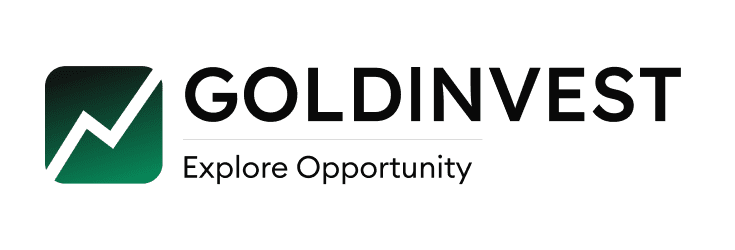{australien_flagge}EcoGraf Limited (ASX: EGR; FSE: FMK) aims to bring the capacity of its planned battery anode plant in Perth, Australia, to 25,000 tons per year faster than previously planned. Instead of the previously envisioned two-stage expansion with development steps of 5,000 tons in Stage 1 and 20,000 tons in Stage 2, the company plans an immediate single-stage expansion to 25,000 tons of annual capacity. EcoGraf is doing this in response to increased demand from customers in Europe and North America, the company said in a press release today.
{australien_flagge}EcoGraf Limited (ASX: EGR; FSE: FMK) aims to bring the capacity of its planned battery anode plant in Perth, Australia, to 25,000 tons per year faster than previously planned. Instead of the previously envisioned two-stage expansion with development steps of 5,000 tons in Stage 1 and 20,000 tons in Stage 2, the company plans an immediate single-stage expansion to 25,000 tons of annual capacity. EcoGraf is doing this in response to increased demand from customers in Europe and North America, the company said in a press release today.
The revised plan will allow for faster startup, a more efficient construction schedule, as well as economies of scale and expansion of a significant market position, it said. The new plant is expected to be operational by mid-2023. European and North American markets required accelerated lithium-ion BAM production to meet demand for electric vehicles, it said.
The company is benefiting from increased demand for new supplies of battery anode material as a result of the U.S. Mineral Security Partnership (June 2022) and the Inflation Reduction Act (August 2022). According to EcoGraf, the company has received increased requests from electric vehicle manufacturers in Europe and North America for the supply of battery anode materials in recent months, which implies the company’s ability to increase production rates to meet demand in these regions. Geopolitical shifts in Europe and the Pacific are changing trade flows, regionalized battery supply chains and pricing models based on critical mineral security, responsible sourcing and sustainable production processes
Graphite dominates battery mineral demand, which is expected to increase from 200,000 tons in 2021 to nearly 5 million tons in 2035, according to recent forecasts by PwC Strategy& in Germany.
Progress in negotiations on graphite project in Tanzania
EcoGraf also expects to report news on its Epanko graphite project in Tanzania soon. Currently, the company is finalizing the Epanko framework contract agreements with the Special Presidential Government Negotiating Team to support the project financing process, it said. EcoGraf is also recruiting personnel, preparing project development plans for construction of the mine and evaluating future expansion options for Epanko, he said.
The goal, he said, is to develop the long-life Epanko graphite project to produce the highest quality natural graphite to industry-leading Equator Principles environmental and social standards and make Tanzania a major international supplier of graphite minerals for electric vehicles. In particular, EcoGraf is exploring the potential for micronization and spheronization operations in Tanzania to optimize supply chain efficiencies for regionalized EcoGraf™ battery anode material plants.
Discussions are also underway with the Tanzanian government to develop the Merelani-Arusha graphite project and establish mechanical shaping facilities in the country to process Epanko and Merelani-Arusha flake graphite into battery anode material, leveraging Tanzania’s renewable hydropower and proximity to key markets to optimize EcoGraf supply chain efficiency.
Bottom line: experts at PwC expect demand for battery graphite to increase twenty-five-fold over the next 13 years in tandem with the EV revolution. Even if one takes the precaution of assuming only half of this growth, it is completely unclear where all the additional graphite will come from. Even China will not be able to do this with domestic production, quite apart from the fact that the changed geopolitical situation raises anew the question of the degree of dependence. EcoGraf may be a global pioneer with its hydrofluoric acid-free process for processing natural graphite – the Epanko graphite project in Tanzania is just as unique, as it is the only one of its kind to meet the strict environmental and social standards of the Equator Principles, making it investable at all for European institutions. For automotive manufacturers seeking ESG-compliant integrated supply chains, “clean” battery graphite from EcoGraf is therefore the first choice. The market has hardly realized EcoGraf’s special position in the upstream and downstream business in the rapidly growing graphite market. EcoGraf could become a global player due to its head start in time and technology.
Disclaimer: The contents of www.goldinvest.de and all other used information platforms of the GOLDINVEST Consulting GmbH serve exclusively the information of the readers and do not represent any kind of call to action. Neither explicitly nor implicitly they are to be understood as an assurance of possible price developments. Furthermore, they do not in any way replace individual expert investment advice, but rather represent advertising / journalistic texts. Readers who make investment decisions or carry out transactions on the basis of the information provided here do so entirely at their own risk. The acquisition of securities involves high risks, which can lead to the total loss of the invested capital. The GOLDINVEST Consulting GmbH and its authors exclude any liability for financial losses or the contentwise warranty for topicality, correctness, adequacy and completeness of the articles offered here expressly. Please also note our terms of use.
According to §34 WpHG we would like to point out that partners, authors and/or employees of GOLDINVEST Consulting GmbH may hold or hold shares of EcoGraf Ltd and therefore a conflict of interest exists. Furthermore, we cannot exclude that other stock exchange letters, media or research firms discuss the stocks we discuss during the same period. Therefore, symmetrical information and opinion generation may occur during this period. Furthermore, there exists between EcoGraf Ltd and GOLDINVEST Consulting GmbH a consulting or other service contract, which also causes a conflict of interest.













